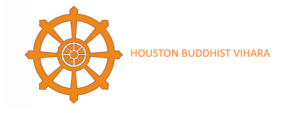HBV Newsletter – May 2021
MESSAGE FROM VEN. RAHULA DHAMMA ARTICLES / NEWS / ANNOUNCEMENTS
Vol. 19 No.05 5/27/2021
Even Moderate Drinking Causes Brain Damage
Despite the fact that refraining from alcohol is a daily Buddhist precept, some display an irresistible penchant for alcohol. There are several levels of alcohol consumption: habitually excessive, social, and moderate.
Those who drink in moderation believe that kind of drinking is beneficial rather than harmful. That is what the producers of alcohol want us to feel. However, several of new research refute that argument with substantial evidence.
We are giving below the latest of such research:
Any amount of alcohol consumption harmful to the brain, finds study
Source: The Guardian
May 18, 2021
There is no safe amount of alcohol consumption for the brain, with even “moderate” drinking adversely affecting nearly every part of it, a study of more than 25,000 people in the UK has found.
The study, which is still to be peer-reviewed, suggests that the more alcohol consumed, the lower the brain volume. In effect, the more you drink, the worse off your brain.
“There’s no threshold drinking for harm – any alcohol is worse. Pretty much the whole brain seems to be affected – not just specific areas, as previously thought,” said the lead author, Anya Topiwala, a senior clinical lecturer at the University of Oxford.
Using the UK Biobank, a substantial database designed to help researchers decode the genetic and environmental factors that lead some people to develop diseases while others do not, researchers in this study analysed data from 25,378 participants such as age, sex, education, self-reported alcohol consumption, brain size and health from MRI scans, information about hospital and outpatient visits, and memory tests.
Continue reading here:
Vihara News
Vesak 2021: This Friday & Saturday (May 28th & 29th)
Sila Observance: Sila program will begin Saturday at 7:00 am. We need a headcount, and If you plan to attend it physically, please call Ven. Sirirathana Thero (817 751 0692) and inform.
Friday’s program includes lighting Vesak lamps, Puja, and chanting. Please bring your Vesak lanterns around 6:00 pm and decorate the Vihara premises with them.
Sila program, Dana, and Dhamma Deshana are the main items in the Saturday’s program.
Saturday’s Lunch Dana: Subhashini will help organize Saturday’s Dana and Parikkara offering to the Maha Sangha. Please call her at 281 650 9689 if you wish to bring prepared food for Saturday’s Dana and/or offer a donation to a member of the Maha Sangha.
Friday’s Dansela: As done at every Vesak ceremony, Ayanthi and Chandima family will organize the Friday’s Dansela, which begins 6:00 pm
Friday’s Dinner: Janaka and Sonali family will offer dinner to the participants on Friday night around 8:30 pm.
Saturday’s Breakfast Dana: Vihara members from Clear Lake and Friendswood area will offer breakfast Dana to the Maha Sangha and Sila observants Saturday.
Summer Break for Children’s Sunday Classes
All children’s classes for spring 2021 ended on May 23rd. We will decide during the next few weeks whether to have fall classes virtually or in person.
In the meantime, please be watchful about the announcements regrading children’s writing and other workshops during summer.
